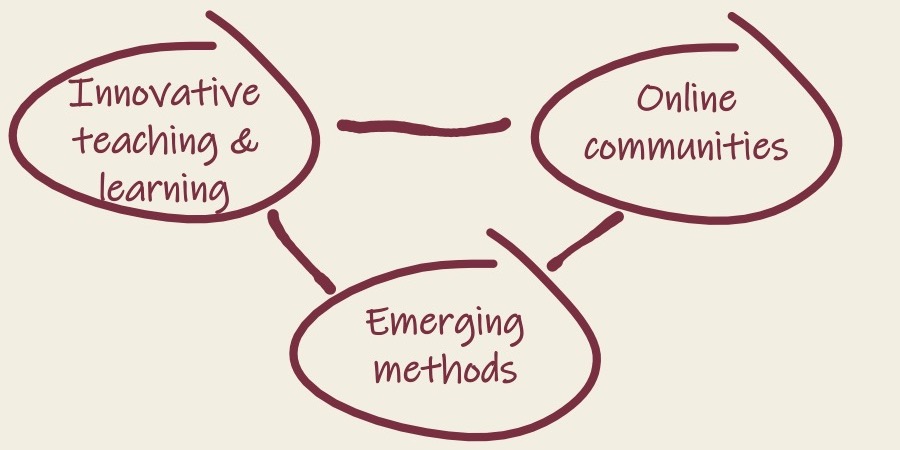We are the Educational Research into the Social and Online (ERSO) group, a research team gathered and led by Dr. Bret Staudt Willet and Dr. Secil Caskurlu. We are based in the Instructional Systems and Learning Technologies (ISLT) program at Florida State University, but our contributors and collaborators are global in scope.
Our name, ERSO, is both an acronym of our research areas as well as a nod to the sci-fi character Galen Erso. In the Star Wars universe, Erso was the engineer who developed the blueprints for the Death Star, while also building in a fatal flaw that would enable rebels to bring down the whole system. Educational technologies are often like a Death Star: impressive technological marvels capable of great harm. By taking on the ERSO moniker, we hope to hold jointly the possibilities and perils of the learning technologies we study.

Image generated by Midjourney AI art (Prompt: “Galen Erso sketching the Death Star plans”")
Research Areas
Broadly, our research investigates social and online dimensions of education. This focus covers three areas:
Innovative teaching and learning
- New teachers' induction support systems
- Computing education in K-12
- Educators as data scientists
- Educators' informal learning and invisible labor
Online communities
- Affinity spaces hosted in web forums and social media
- Social, cognitive, and instructional factors that impact students' learning experiences
- Applying cognitive science principles to online teaching and learning
Emerging methods
- Systematic reviews in educational research
- Learning analytics and social network analysis
- tidytags R package for collecting Twitter data

We appreciate that you’re here, visiting our digital home. While you’re here, check out some of our projects and the latest news. We’d also love for you to connect with us by email.
Let’s work on something together soon!
Land Acknowledgement

We Honor Native Land
We live and work in Tallahassee, Florida, on the traditional land of the Apalachee, Muscogee, and Miccosukee Peoples. We share this land acknowledgement to demonstrate our commitment to learning and working to dismantle the ongoing legacies of settler colonialism.
We recognize that this land remains scarred by the histories and ongoing legacies of settler colonial violence, dispossession, and removal. In spite of all of this, and with tremendous resilience, these Indigenous Nations have remained deeply connected to this territory, to their families, to their communities, and to their cultural ways of life. We recognize the ongoing relationships of care that these Indigenous Nations maintain with this land and extend our gratitude as we live and work as humble and respectful guests upon their territory.
We encourage you to learn about and amplify the contemporary work of the Indigenous nations whose land you are on and to endeavor to support Indigenous sovereignty in all the ways that you can. To start learning, we have found the Native Land map to be fascinating to explore, and the Honor Native Land guide from the U.S. Department of Arts & Culture has many useful resources. Finally, if you are in the Tallahassee area, you may find this list of resources from the Decolonize FSU group to be helpful.